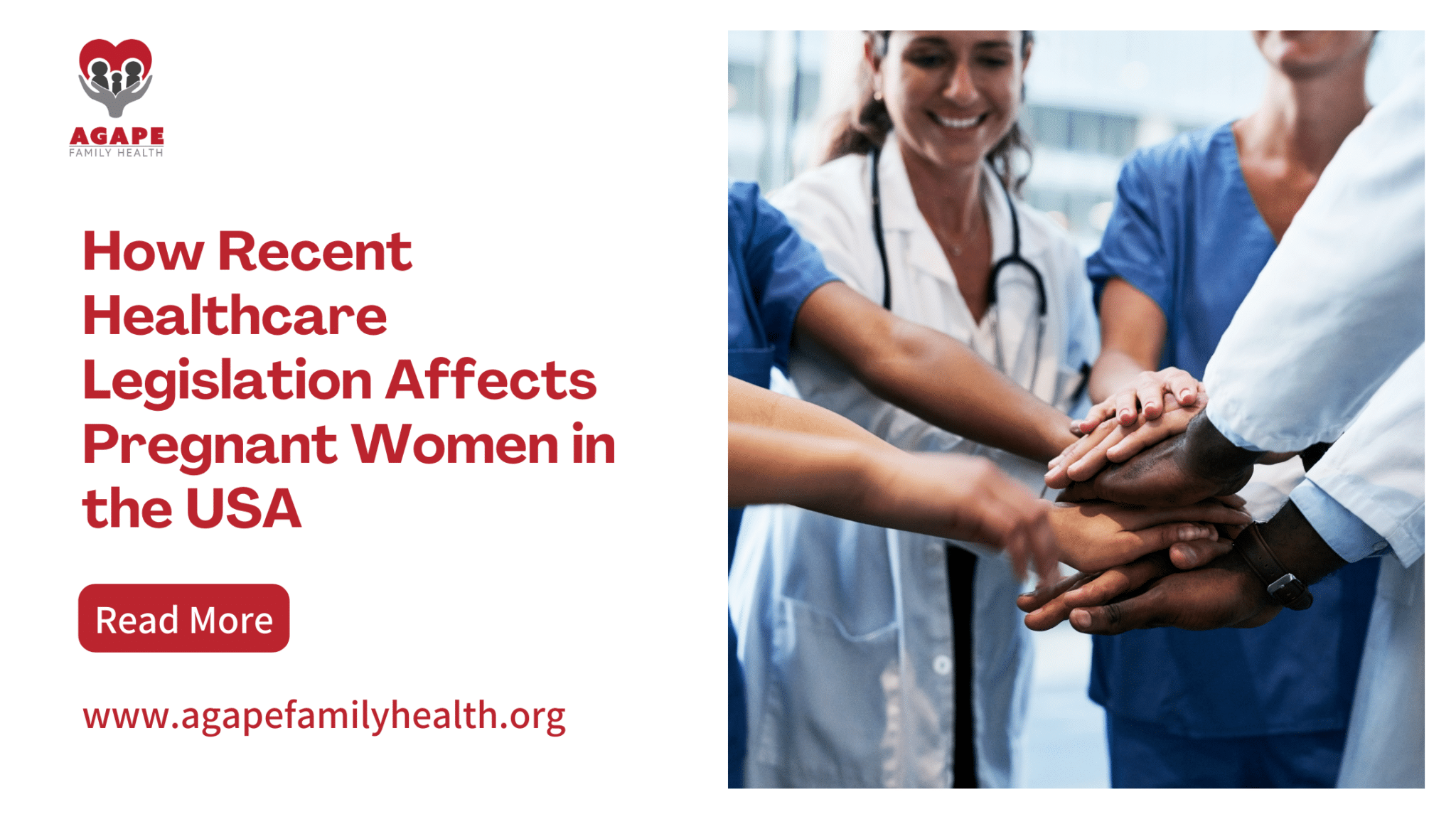In recent years, significant legislative strides have been made in the United States to enhance healthcare provisions for pregnant women, particularly emphasizing extended coverage and improved care quality across diverse communities. Here’s an overview of how recent healthcare legislation is reshaping maternal healthcare.
Federal Actions and Enhancements in Maternal Healthcare
The recent federal legislative efforts aimed at improving maternal healthcare in the United States have been particularly significant, focusing on enhancing access and quality of care for pregnancy and postpartum women across different populations.
Legislative Highlights
- Protecting Moms Who Served Act of 2021: This legislation is specifically tailored to address the healthcare needs of pregnant veterans. Recognizing the unique challenges faced by women who have served in the military, this Act aims to codify and enhance the maternity care coordination programs within the Department of Veterans Affairs. It ensures that these programs are adequately resourced and tailored to meet the specific healthcare needs of veteran mothers, thus improving their access to quality maternal healthcare services.
- Rural Maternal and Obstetric Modernization of Services (MOMS) Act: This Act focuses on improving maternal health in rural areas, where medical services are often sparse and healthcare disparities are more pronounced. By enhancing data collection, expanding telehealth services, and offering new training for rural healthcare providers, the MOMS Act aims to bridge the gap in quality of care available to pregnant women in these communities. It also supports the establishment of rural obstetric networks, which are crucial for ensuring that pregnant women in rural areas receive the necessary care without the need to travel long distances.

Biden Administration’s Commitment
In response to the increasing restrictions on reproductive rights in various states, the Biden administration has taken a firm stance on protecting and expanding access to reproductive and maternal healthcare. This commitment is evident in several key actions:
- Defending the Right to Travel for Medical Care: In light of restrictions on reproductive health services, including abortion, in some states, the Biden administration has emphasized the constitutional right to travel between states for medical care. This ensures that women can access necessary reproductive health services even if they are restricted in their own states.
- Expanding Medicaid Access: The administration has been proactive in expanding Medicaid coverage to support pregnant women, particularly those affected by state-level healthcare restrictions. This includes encouraging states to apply for Medicaid waivers that would allow for expanded healthcare services for pregnant women, thereby ensuring that they receive comprehensive care throughout their pregnancy and postpartum period.
State-Level Initiatives in Maternal Healthcare
Across the United States, state governments are implementing innovative healthcare policies to address the needs of pregnant and postpartum women, with a particular focus on expanding access and reducing disparities in maternal healthcare.
Support for Community Health Workers
States like New York and Washington have recognized the vital role that Community Health Workers (CHWs) play in the healthcare system, especially for pregnant and postpartum women. CHWs are often members of the communities they serve, sharing cultural and social contexts with their clients, which enables them to provide culturally competent care and effectively navigate systemic barriers. These states have initiated policies to integrate CHWs into healthcare teams more formally, providing support through funding, training, and policy frameworks that facilitate their work in maternal health.
In New York, legislation has been passed to cover services provided by CHWs under Medicaid, specifically targeting pregnant and postpartum patients. This coverage includes a variety of supportive services, such as health education, navigation of the healthcare system, and direct support during and after pregnancy (Families Usa). Similarly, Washington has established grant programs to support the reimbursement of CHWs, recognizing their role in reducing healthcare costs and improving outcomes by addressing health-related social needs.
Medicaid and Insurance Coverage Expansions
A significant shift in healthcare policy at the state level has been the expansion of Medicaid coverage for pregnant women. Historically, Medicaid provided pregnancy-related coverage only up to 60 days postpartum. Recent federal mandates now require states to extend Medicaid eligibility for pregnant women to 138% of the federal poverty level, with an option to extend this coverage up to one year postpartum.
Read more here: Analysis of Federal Bills to Strengthen Maternal Health Care
The Build Back Better Act takes these provisions further by mandating that Medicaid and the Children’s Health Insurance Program (CHIP) provide a full year of continuous postpartum coverage, ensuring that new mothers have access to necessary healthcare services beyond the immediate postpartum period. This continuous coverage includes the full range of Medicaid benefits, which is crucial for addressing the comprehensive health needs of postpartum women.
Read more: House Passes Build Back Better Act with Significant Health Care Provisions

Addressing Workplace and Economic Challenges
The Pregnant Workers Fairness Act (PWFA) is a pivotal piece of legislation aimed at safeguarding the rights of pregnant workers in the United States. This act makes it unlawful for employers to refuse reasonable accommodations to employees affected by pregnancy, childbirth, or related medical conditions. Such accommodations might include more frequent breaks, temporary modifications in work duties, or the provision of appropriate seating.
Key Provisions of the PWFA
The act is designed to ensure that pregnant workers receive fair treatment and are not forced to choose between their health and their jobs. By requiring employers to provide reasonable accommodations, similar to those provided to workers with disabilities under the Americans with Disabilities Act, the PWFA helps maintain economic stability for pregnant workers and protects them from workplace discrimination. This legislation is particularly significant for low-income and minority workers, who may be disproportionately affected by pregnancy-related discrimination in the workplace.
Impact on Minority Healthcare
The Health Equity and Accountability Act of 2022 is another crucial legislation that addresses health disparities within minority populations. This act provides a comprehensive framework for improving the collection and analysis of health data, which is essential for identifying and addressing disparities in healthcare access and outcomes/
Strategies for Enhancing Healthcare Equality
The legislation emphasizes the need for enhanced data collection systems that can accurately reflect the health needs of diverse communities, thereby informing more effective healthcare policies and interventions. It also focuses on improving transparency in healthcare delivery and outcomes, which is crucial for holding healthcare providers and systems accountable for equity in care provision. These measures are intended to ensure that healthcare services are tailored to the diverse needs of minority populations, thereby reducing the disparities that these groups often face in the healthcare system.
Conclusion
These state-level initiatives reflect a growing recognition of the importance of targeted support for pregnant and postpartum women, particularly those who are most vulnerable. By supporting community health workers and expanding Medicaid coverage, states are taking critical steps to improve maternal health outcomes and ensure that all women have access to the care they need during and after pregnancy. These efforts are vital for reducing health disparities and enhancing the overall health and well-being of mothers and their babies.



